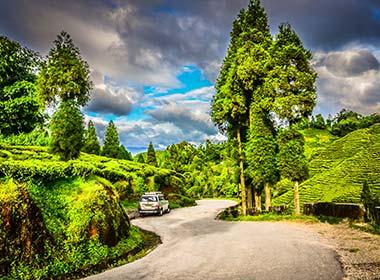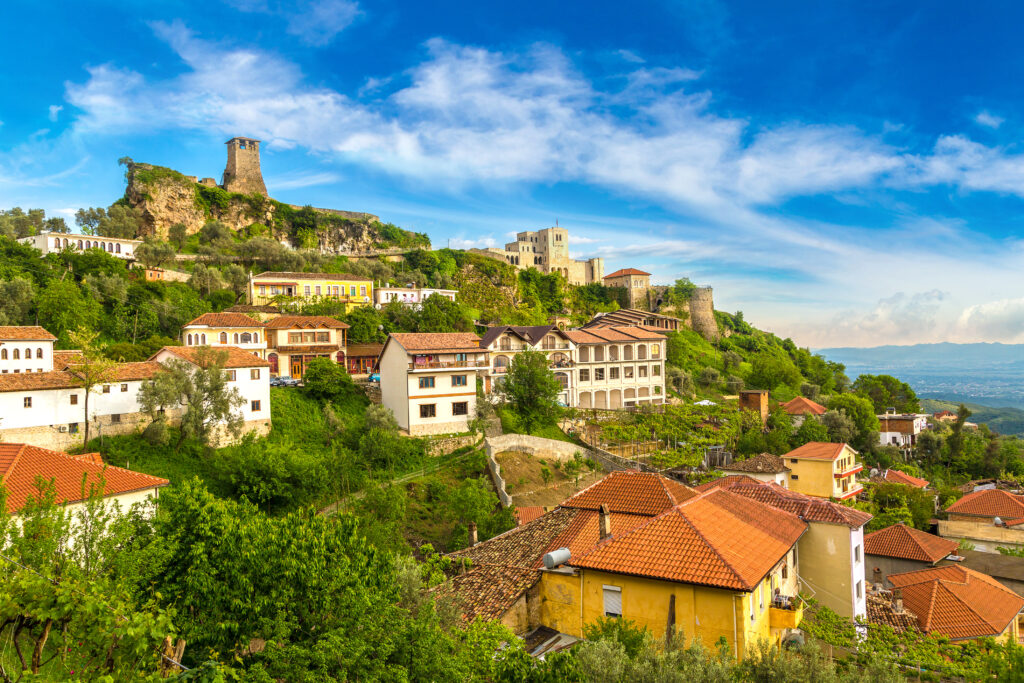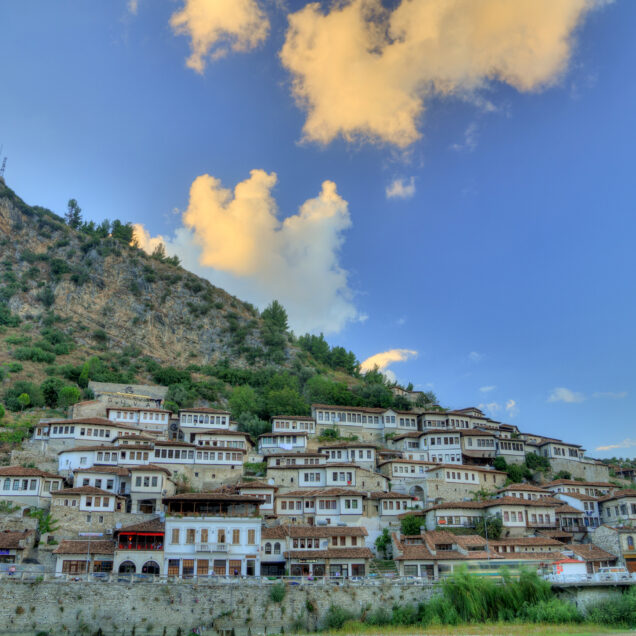

Albania has been described as the secret of the Mediterranean. Relatively insulated from globalisation and isolated by communism for many years, travelling the country on an Albania adventure tour offers a fascinating experience.
Albania is a largely Muslim country, known as much for its determination to go it alone after the disintegration of the Communist Bloc, as for its centuries-old policy of honouring its guests with the warmest possible hospitality. The compact capital of Tirana is very walkable and you can enjoy wonderful views over the city from Mt Dajt before visiting little-known medieval churches with beautiful frescoes. During your Albania adventure tour you can enjoy a walk down the city’s grand, leafy boulevards where Turkish and Italian influences are apparent in the architecture. The Et’hem Bey Mosque is also a must-see for its intricate wall paintings.

A perfect 7-day tour that starts and finishes in Tirana. A chance to soak up the colourful Soviet-era architecture and the excellent hospitality of this vibrant city.
If you are looking for an Albanian adventure as part of a longer Balkans tour, we recommend the Zagreb to Tirana tour. 22 days of culture, history and breathtaking scenery.
Relatively new to tourism, Albania is a small country that makes up the Balkans peninsula. It boasts spectacular natural beauty from snow-capped mountains to perfect Mediterranean-like beaches. It’s capital, Tirana, is home to a huge amount of cultural highlights including Skanderbeg Square, named after the Albanian hero who led the rebellion against the Ottoman empire. While Albania has had a fascinating and often tubulent history, the country has transformed into vibrant place to explore.
Albania’s monetary unit is the lek (plural = leke). All major currencies can be exchanged at banks and bureaux de change. Currency markets operate on the street in most towns, usually in front of the main post offices or banks, a perfectly legal way to exchange money and avoid bank commissions. You cannot exchange lek outside of Albania, so make sure you exchange before you leave.
While most rural towns still deal exclusively in cash, supermarkets in cities, the better bookstores and the better boutique stores will generally accept credit or debit cards. VISA, Mastercard, and Diner’s Club are the most widely accepted credit cards. Most banks will give cash advances on credit cards with a passport. There are ATMs in most towns which you can use to withdraw cash from most international Visa and Mastercard credit or debit cards. Traveller’s cheques can be changed in banks in most larger towns. Travellers can take traveller’s cheques in US dollars or Euros to avoid additional exchange rate charges. The central banks in Albania that serve tourists are Raiffeisen Bank, American Bank of Albania, Pro Credit Bank and Tirana Bank.
Albania’s capital city is Tirana. It is home to many cultural sights and is bursting with colour. Although it has undergone a massive transformation since the 1990s, it retains its post-Soviet and brutalist intrigue. To understand ordinary life under the previous communist regime, we recommend visiting one of the two Bunk’Art museums.
Food and hospitality are fundamental aspects of Albanian culture, with dishes that can be seen to have Mediterranean, Turkish, Italian and Greek influences. Enjoy walking off the calories by exploring the Grand Park.
Another Albanian gem is the small town of Berat, situated in the middle of Albania. Nestled on the mountainside, this town has been listed as a UNESCO Heritage site since 2008. White picturesque houses typical of the Ottoman period line the hillside, giving it the nickname “the town of a thousand windows.” One of its major highlights is the ruins of the castle, or Kala, which dates in part from the 4th Century
Electricity supply in Albania is 230 volts and the most common plug socket is for two round-prong plugs such as that used in Europe.If in doubt, take a universal adaptor to cover your bases especially if you are travelling on a multi-country tour.
Albania is a largely Muslim country, but it is also made up of a number of different minority groups including Bulgarians, Greek, Romanian and Macedonian. Albanians are extremely hospitable and traditional cultures honour guests. Therefore they are welcoming and smiling towards tourists, especially as tourism is still a relatively new concept. Sometimes body language may be different than what you may be used to. Shaking the head means ‘yes’ whilst a nod means ‘no’.
Albania is bordered by Montenegro to the north and Greece to the Southeast. Kosovo sits to the northeast and Macedonia to the east. It also has a coast on the Adriatic Sea and Ionian Sea. About 70% of the country is mountainous and over a third of the territory is forested.
The country known as the Republic of Albania is locally referred to as Shqipëria. The heritage of Albanians can be traced back to prehistoric times, when the Illyrians ruled the area. Greeks later took over the country. The Roman invasion in 168 BC led to the region’s incorporation into the Roman Empire. The separation of that Empire saw the country later subsumed into the Byzantine Empire. During the 14th century AD, the territory was turned over to the Ottoman Turks. The Turks ruled throughout the medieval era into the Middle Ages. This despite a battle by fiercely loyal Albanians against their occupiers in the 15th century.

Albania declared independence in 1912, only to be invaded by Italy in 1939. Communist partisans later liberated Albania from Italian control. Enver Hoxha was the prime minister from 1944 to 1954. However, as first secretary of the (Communist) Central Committee, he effectively controlled the government until he died in 1985.
In 1948, Albania allied itself with the USSR, a relationship that lasted until 1960, when its allegiance shifted to China. It remained so aligned until 1978. In the early 1990s, Albania ended 46 years of Communist rule and established a multiparty democracy. Although his regime brought a sense of identity and security for some, it was widely recognised as brutal and oppressive.
Albania is now an active member of the United Nations (UN) and the North Atlantic Treaty Organisation (NATO) alliances. The nation applied for EU membership in 2009, and accession negotiations began in July 2022.
We are passionate adventure travelers who want to share the world and our travel experiences with everyone…
This website uses cookies so that we can provide you with the best user experience possible. Cookie information is stored in your browser and performs functions such as recognising you when you return to our website and helping our team to understand which sections of the website you find most interesting and useful.
Strictly Necessary Cookie should be enabled at all times so that we can save your preferences for cookie settings.
If you disable this cookie, we will not be able to save your preferences. This means that every time you visit this website you will need to enable or disable cookies again.
